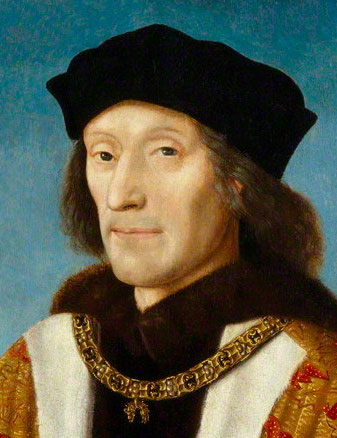
1485
Henry Tudor takes the crown as Henry VII upon the defeat of Richard III at Bosworth Field.

Henry Tudor takes the crown as Henry VII upon the defeat of Richard III at Bosworth Field.
On the death of his father, James III, James IV becomes king of Scotland.
James IV of Scotland marries Margaret Tudor, the daughter of Henry VII.
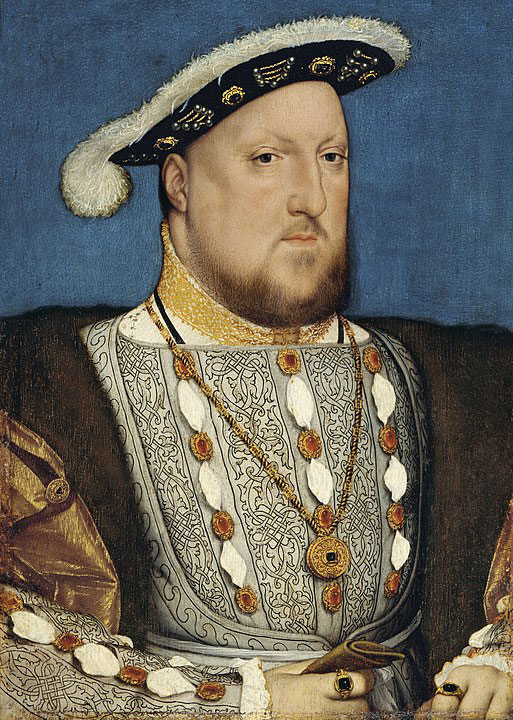
On the death of his father, Henry VII, Henry VIII accedes to the throne.
Henry VIII marries his first wife, Catherine of Aragon.
England joins the Holy League in a war against France and Scotland.
War is declared between England and France.
The Royal Mail is founded.
James IV of Scotland dies in the battle of Flodden, where his forces are defeated by the English.
A peace treaty is signed between England and France.
James V, aged just one year old, accedes to the throne of Scotland.
Work begins on the palace at Hampton Court.
Mary Tudor, later Mary I, is born to Henry VIII and Catherine of Aragon.
Martin Luther produces his 95 Theses in Wittenberg.
Henry VIII of England and Francis I of France meet at the Field of the Cloth of Gold.
Martin Luther is excommunicated by Pope Leo X.
Revolts in England in lead to the abandonment of the Amicable Grant tax.
Hans Holbein the Younger visits England for the first time.
The Tyndale Bible is the first English language bible to appear in print. It is banned and William Tyndale is later executed.
Henry VIII begins annulment proceedings against Catherine of Aragon.
Henry VIII sponsors the first attempt to reach the North Pole and Northwest Passage under John Rut.
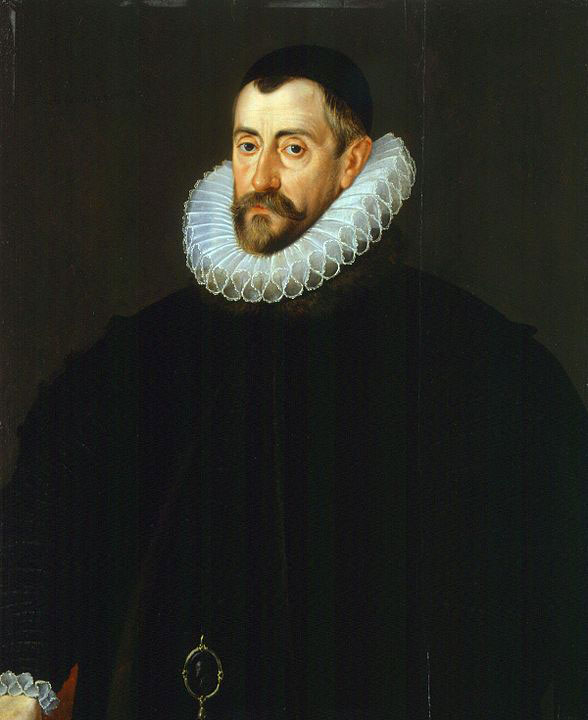
Life of Francis Walsingham, secretary and spymaster to Elizabeth I.
Thomas Cranmer, the archbishop of Canterbury, annuls the marriage between Henry VIII and Catherine of Aragon.
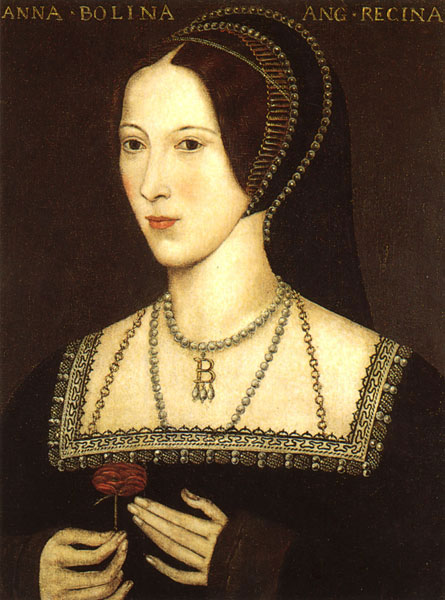
Henry VIII marries Anne Boleyn.
Elizabeth Tudor, later Elizabeth I, is born to Henry VIII and Anne Boleyn.
The Act of Supremacy establishes Henry VIII and subsequent monarchs as the head of the Church of England, further enforced by the Treasons Act in the same year.
Thomas More and John Fisher are executed under the Treasons Act of 1534.
The Dissolution of the Monasteries, the policy of appropriating income and property from the church, begins.
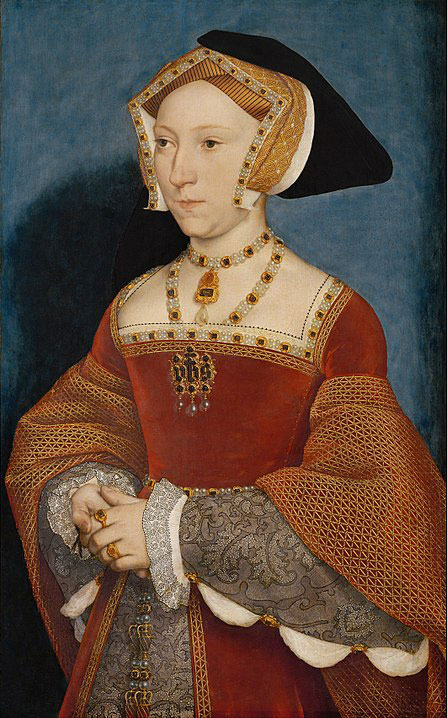
Anne Boleyn is beheaded on charges of adultery. Eleven days later, Henry VIII marries Jane Seymour.
The 'Pilgrimage of Grace' - religious opposition to monastic dissolutions produces rebellions in Lincolnshire, Yorkshire and Cumberland.
Jane Seymour gives birth to a male heir, the future Edward VI, but dies shortly after.
The Great Bible, the first authorized edition in English, is published for use in services of the Church of England.
Henry VIII marries Anne of Cleves. Their marriage is annulled later the same year.
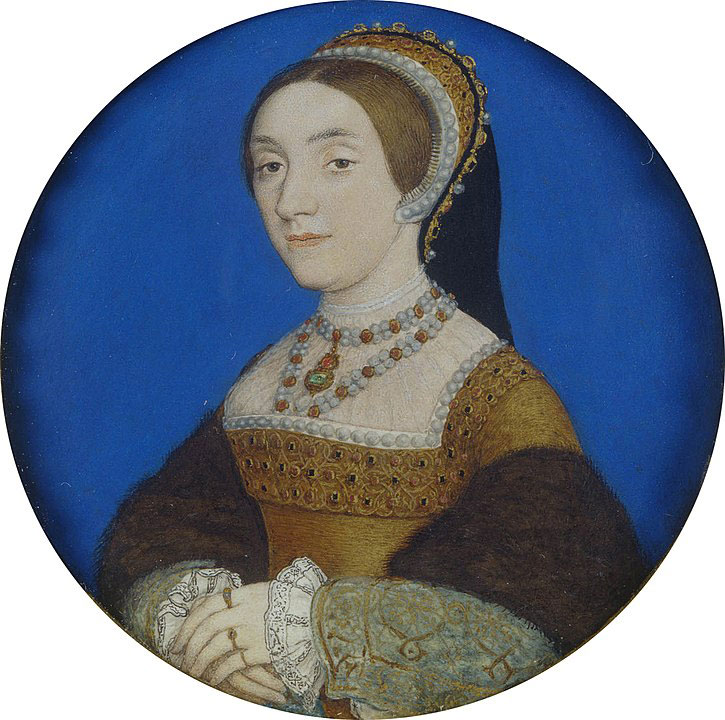
Henry VIII marries Catherine Howard.
Henry VIII is declared King of Ireland by statute of the Parliament of Ireland.
Catherine Howard is beheaded on the charge of adultery.
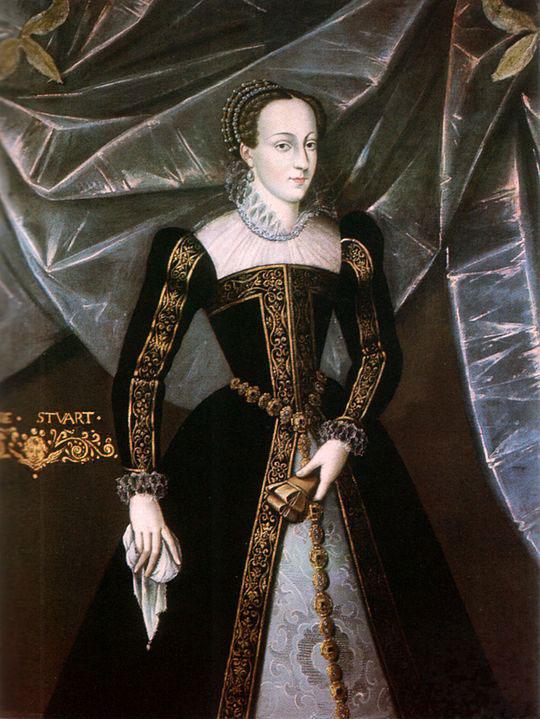
Mary Stuart accedes to the thrones as Mary I of Scotland, also known as Queen of Scots.
Henry VIII marries his sixth and final wife, Catherine Parr.
Henry VIII proposes a marriage pact between his son, Edward, and Mary Queen of Scots; he is rejected by the Scottish parliament.
Henry VIII, with the support of the Holy Roman Emperor Charles V, declares war against France.
Henry VIII launches a punitive expedition into Scotland, known as the 'Rough Wooing', in response to his rejected marriage pact.
English forces sack Edinburgh.
English forces invade France.
A Scottish army defeats the English at the Battle of Ancrum Moor.
A French fleet enters the Solent but is repulsed; in the conflict, the English ship Mary Rose sinks.
A peace treaty is signed between England and France.
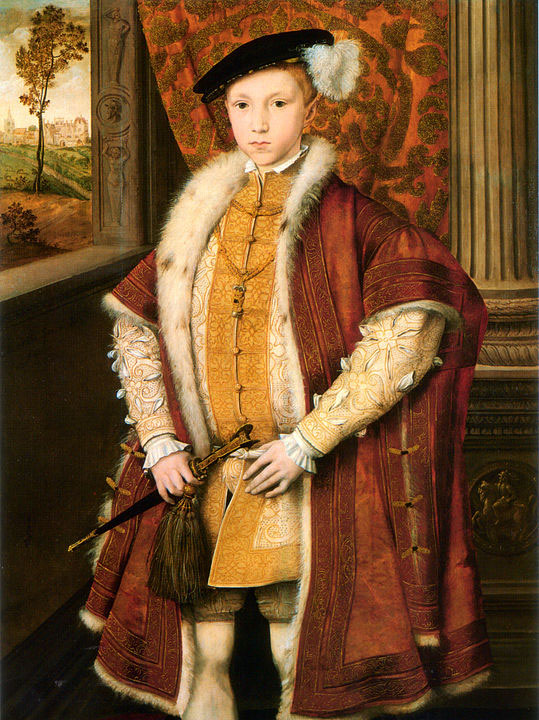
On the death of Henry VIII, his son Edward VI accedes to the throne with Edward Seymour, Duke of Somerset, as Lord Protector.
Hostilities resume between England and Scotland as Lord Somerset defeats the Scottish army at the Battle of Pinkie Cleugh.
Life of Nicholas Hilliard, goldsmith and artist who painted portrait miniatures of the courts of Elizabeth I and James I of England.
French troops arrive in Scotland to support them in the war against England.
Mary Queen of Scots escapes to France.
France formally declares war against England.
English forces abandon their position in Scotland.
Kett's Rebellion in East Anglia against landowners; ends in Battle of Mousehold Heath outside Norwich.
Peasants in the West Country revolt in protest against the newly published Book of Common Prayer.
Porcelain known to have arrived in Britain. It is documented in Henry VIII's jewel house.
A peace treaty is signed between England and France.
A formal peace is agreed between England and Scotland.
Further Protestant reforms include a revised Prayer Book and a new Act of Uniformity.
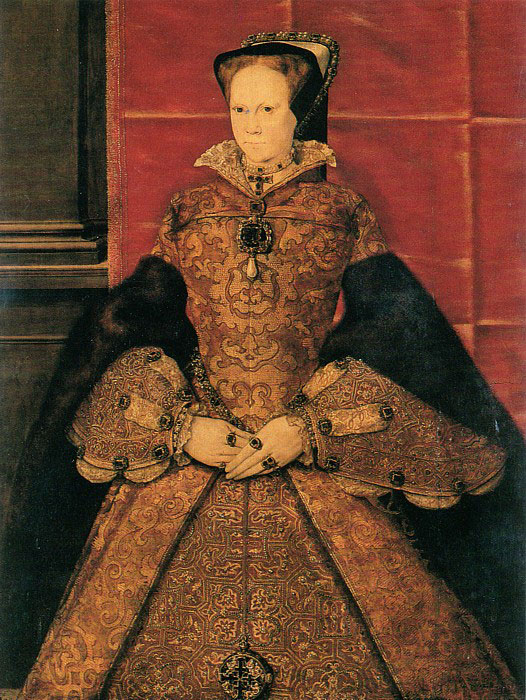
On the death of Edward VI, Lady Jane Grey accedes to the throne. She is quickly replaced by Mary I of England.
Sir Thomas Wyatt the Younger leads an unsuccessful uprising in protest of Mary's decision to marry Philip II of Spain.
Mary I marries Philip II of Spain.
Mary I returns England to Catholicism and revives the Heresy Acts.
The first executions of Protestants under the Heresy Acts take place.
A plot to usurp Mary I is discovered and the conspirators in England executed.
England joins Spain in a war against France.
French forces capture Calais, the final English stronghold in France.
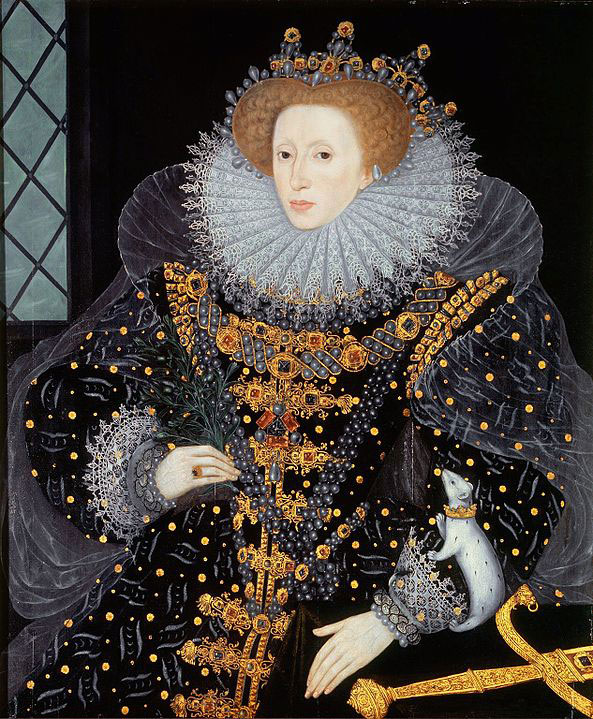
On the death of Mary I, Elizabeth I accedes to the throne.
Mary Queen of Scots marries the Dauphin Francis of France.
With a new Act of Supremacy, Elizabeth I restores England to Protestantism.
On the death of Henry II of France, Francis and Mary become king and queen of France.
Mary Queen of Scots returns to Edinburgh a year after the death of her husband, Francis II of France.
Life of Francis Bacon.
Conflict between Protestants and Catholics breaks out in France. Elizabeth I supports the Protestant Huguenots and captures Le Havre.
John Hawkins begins to lead expeditions to Spanish colonies in the New World.
Le Havre is recaptured by French forces.
The Statute of Artificers imposes maximum wage rates, regulates labour and implements compulsory service for unmarried people not in apprenticeship.

Life of William Shakespeare.
Life of Christopher Marlowe.
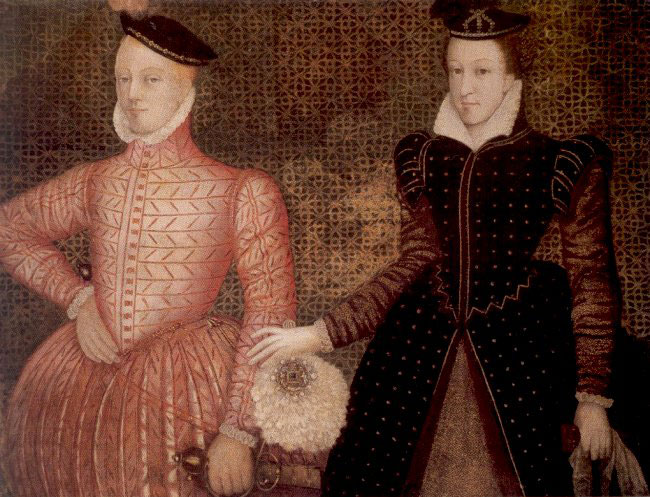
Mary Queen of Scots marries her cousin Henry Stuart, Lord Darnley.
James Stewart, 1st Earl of Moray, leads a rebellion in Scotland protesting the marriage between Mary and Lord Darnley.
Conspirators murder David Rizzio, secretary to Mary Queen of Scots.
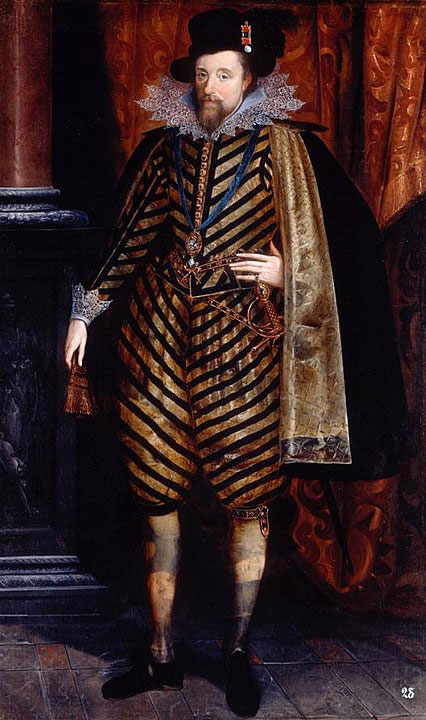
James Stuart, later James VI of Scotland and I of England, is born.
Lord Darnley, husband of Mary Queen of Scots, is murdered at Kirk o' Field; Mary herself is implicated in the murder.
Mary Queen of Scots marries James Hepburn, Lord Bothwell.
The first National Lottery is held with a grand prize of £5,000.
Mary Queen of Scots is forced to abdicate and her son, James VI accedes to the throne of Scotland.
The first permanent theatre in England, the Red Lion playhouse, is built in Whitechapel, London.
A fleet of English privateers, including a ship commanded by Francis Drake, clashes with Spanish forces in the New World .
Mary Queen of Scots is defeated at the Battle of Langside.
Mary Queen of Scots flees across the border to seek the protection of Elizabeth I but is detained and imprisoned.
The Bishop's Bible is published by the Church of England.
An unsuccessful revolt among Northern Earls seeks to depose Elizabeth I and replace her with Mary Queen of Scots.
First Desmond Rebellion, as Irish factions attempt to resist English expansion in Ireland.
Elizabeth I is excommunicated by Pope Pius V.